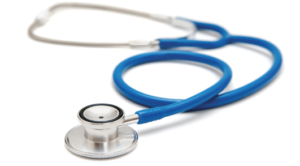Ghana government urged to tackle ‘brain drain’ to save healthcare system
 Sampson Antwi, the Vice Dean of the School of Medicine and Dentistry, Kwame Nkrumah University of Science and Technology (KNUST), has advised the government to tackle urgently the attrition of skilled health personnel.
Sampson Antwi, the Vice Dean of the School of Medicine and Dentistry, Kwame Nkrumah University of Science and Technology (KNUST), has advised the government to tackle urgently the attrition of skilled health personnel.
He said the swift action would prevent Ghana’s health service from paralysing, saying a more formalised way of engagement with foreign governments would be mutually beneficial than the current uncontrolled exodus.
Prof. Antwi gave the advice in a keynote address at the 45th Annual General and Scientific Meeting (AGSM) of the West African College of Physicians (WACP) Ghana Chapter in Accra, which was on the theme: “Impact of COVID-19 on Healthcare Practice in Ghana.”
Prof Antwi said as of July 28, 2022, the pandemic had recorded 579,216,591 cases and 6,413,702 confirmed deaths, making it one of the deadliest in history, adding that the huge human resource deficit created by COVID-19 in most health institutions in developed countries had sparked a new wave of “brain drain” in Ghana’s health care system.
Data on separated staff from the Okomfo Anokye Teaching Hospital (KATH), Kumasi, showed that 161 professionals left in 2017, followed by 168 more in 2018, rising further to 170 in 2019, 172 in 2020, and 230 in 2021, he said.
Comparatively, data on mid-year separation showed a sharp rise in the number of staff from 66 and 65 in 2018 and 2019 respectively, to 148 between 2020 and now, he added.
Prof. Antwi said COVID-19 presented both positive and negative effects on healthcare practice globally, exposing huge challenges and weaknesses in infrastructure, financing, emergency preparedness, and safety practices by healthcare practitioners.
However, in Ghana, swift measures were initiated to enhance surveillance, contact tracing, testing, infrastructural expansion, training of healthcare professionals, local production of Personal Protective Equipment (PPEs) and other medical supplies, introduction of hand hygiene practices, facemask wearing, and social distancing rule, to contain the spread of infection, he noted.
The country’s land and air boarders, including the Kotoka International Airport in Accra, were closed, and a three-week lock down imposed on Greater Accra, Ashanti, and part of Central regions to stop the community spread of the virus, while the President via his “Fellow Ghanaians” televised series, which won admiration worldwide, gave regular update on the COVID situation.
He said statistics from the Okomfo Anokye Teaching Hospital showed that out of the total number of 1,158 and 1,927 confirmed cases recorded between 2020 and 2021, 368 representing 31.8 per cent and 529 (27.5 per cent) were health staff.
The disruptions in service delivery, he noted, resulted in over choked wards and units; staff overstretched and overwhelmed health systems, even in developed countries, and facilities had to be shutdown because of inadequate staff numbers, lack of space, PPEs and oxygen scarcity in some centres.
Prof Antwi said the situation created fear and panic among healthcare workers, affected continuing care services, especially for women and children, and disrupted critical training, workshops, conferences and the academic calendar of medical students who graduated without exams or completing their rotations.
He said notwithstanding those challenges, most health institutions responded positively with a major boost in infection prevention training and practices, strengthened local capacity of companies in PPE production and supply to the health sector, and the construction of a new ultramodern Infectious Disease Center in Accra.
He noted that innovative tools like the Touchless thermometers, Medical Drones services, Telemedicine and virtual meetings had now become the new order of doing things in every sphere of life, and also admitted that hand hygiene practices and facemask wearing largely helped in reducing diarrhoeal and other respiratory diseases.
Prof. Antwi said the negative effect of “Post Covid-19,” included the fact that a lot of skilled heath care workers were lost to death, causing a human resource challenges, especially in developed countries, while networking and socialisation were still lacking despite the ease in the restrictions.
Positively, he said Post COVID-19, had seen an increased number of testing centres from two to 50, while hand hygiene practices, face mask wearing, and cough etiquette had come to stay with the potential to reduce diarrhoeal and other respiratory diseases.
He said the strengthened surveillance system of the Ghana Health Service would ensure effective management of other emerging threat of infectious diseases and epidemics, while improved health investment would facilitate Ghana’s local vaccine production from January 2024.
He stated that currently most governments across the globe had increased health spending to strengthen healthcare, and the need for ID centres and more health infrastructure came to light due to deficiencies identified during the hit of the pandemic, which underpinned government’s Agenda 111 vision.
Prof. Antwi, therefore, entreated the government to sustain the momentum of improving Ghana’s healthcare infrastructure by pursuing its Agenda 111 programme.
Dr John Boateng Mensah, the Secretary of WACP-Ghana, commended all health professionals for their commitment and selfless support to society, and encouraged them to help tackle emerging infections like Monkeypox and Marburg viral disease.
Source: GNA
